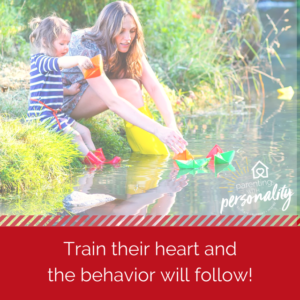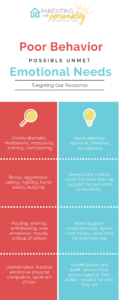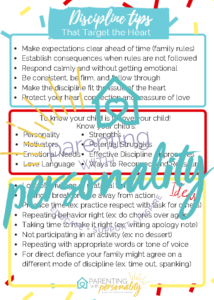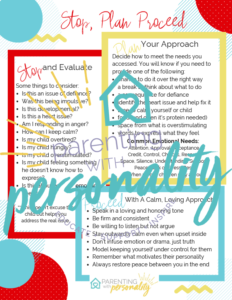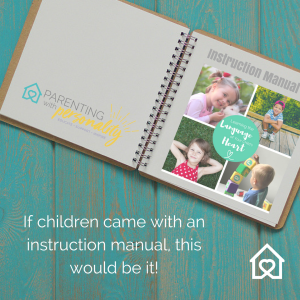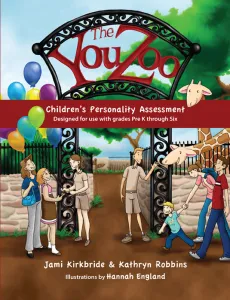The Morning Rush
It’s morning at the Kirkbride house, and from the moment the first person stirs, there will be a domino effect for all that happens for the next 45 minutes. The bus arrives at a whopping 6:30 am! And I would venture to say that in a family of 8 we have approximately 2.2 people that are “morning people.” (You may wonder what the .2 is…well, its fractions of children that used to be morning people and then hit teen years!) I realize all to well, and all too early, that there will be many choices in the morning that will either cause things to work well or totally explode! And you might say that the opportunities to motivate and discipline are plenty!
For those of you who have not read last week’s blog post, please check out A WHOLE NEW PERSPECTIVE ON DISCIPLINE as it will help fill in some gaps here! It will give you a new way of looking at discipline as a positive process of shaping the heart, rather than a negative response to behavior.
Basics To Start With
I must admit that in a family of our size, we have a few waves of chaos in our day. We realistically know that getting everyone up and going, meal times, and leaving the house are three potentially stressful times. And of course on school mornings we combine all three of those at our least favorite time of day! So I have had to use some new tools and tactics in motivating this crowd to weather these waves of chaos and still possess some warm feelings as we part for the day! But before I get to those let’s cover some basics on discipline, motivation, and emotional needs.
I believe disciplining and motivating have some similarities. Discipline as I defined last week would be the purposeful act of training a child in the appropriate and acceptable ways to behave, communicate, and respond to others, including their thoughts, actions, and words. In this way, discipline is not necessarily an action but a process of training your child’s heart.
[bctt tweet=”Discipline: purposeful act of training a child in the appropriate and acceptable ways to behave, communicate, and respond to others, including their thoughts, actions, and words…a process of training your child’s heart. ” username=”personalitymom”]Training The Heart
So, in disciplining, we are training a child’s heart and directing their heart to yield certain attitudes, actions, and responses. Motivation might then be considered how we encourage, support, or direct a child to follow through and make those things happen.
What are those things that we are training in their heart? Well, that might vary per family, according to your personal or spiritual beliefs, or the foundation upon which you build your family. And I would encourage you if you haven’t already talked with your spouse or parenting partners about this, that you do so! I know for our family, we refer to the Bible for our direction. So we focus on training their heart to be growing in love, joy, peace, patience, kindness, goodness, gentleness, self-control, and forgiveness. I might also add that there is great strength in your child knowing that these aren’t just behaviors that your parents want, but behaviors that God wants and even talks about in the Bible.
I remember on one occasion showing our oldest child a verse in the Bible as I was talking through discipline for not obeying. He was quite bright eyed as I pointed out word for word what God had said. When my husband returned home, that child went running to the door exclaiming, “Dad, Dad, did you know that it even says in the Bible, ‘If you love your child you will discipline him?’” There was a great realization to him that day that a power even greater than Mom was asking him to obey, and that our discipline was a direction from God for US as parents to obey. I decided that day that I would need to be more intentional in expressing this to my children. I can’t just assume they know where our direction in parenting is coming from, why it is important, and that we as parents must obey as well!
The Bible also says that we should “Train up a child in the way he should go so that when he is old he will not depart from it.” (Proverbs 22:6). These two verses are two very good reasons to discipline and motivate our children! This verse also indicates some individuality in our approach. And that is one of the very important reasons I believe in the importance of knowing our child’s personality. In learning and understanding their personality, we get that glimpse into their strengths, struggles, and emotional needs.
Meeting Their Emotional Needs
I mentioned in the most recent ChannelMom radio show on discipline (watch it here just scroll down) as well as in last week’s blog article A WHOLE NEW PERSPECTIVE ON DISCIPLINE, that we need to learn about our child’s emotional needs in order to discipline in effective ways. I’d like to explain why.
Oftentimes, when a child’s emotional needs are not being met, their troublesome behavior escalates. It is not conscious on their part, but rather just a way in which they seek to get their emotional needs met (without even knowing what that might be). When we take the time and address the emotional need, then the behavior can de-escalate. Having these needs met eliminates a good bit of troubling behavior.
[clickandtweet handle=”” hashtag=”” related=”” layout=”” position=””]Understanding a child’s emotional needs does not justify inappropriate behavior, but it serves as an alert to us about what will help them get their heart back on track and reconnect, as we apply discipline or consequences.[/clickandtweet]
As they start getting older, we also take the time to help them understand themselves. We help them understand what they need or desire, use appropriate ways to get what they need, and manage their own emotions when it is not possible.
What are some common emotional needs and what behaviors might we see if they are not met? This handy graphic will give a few examples. But I also challenge you to figure out what behaviors you might be dealing with that are causing some frustration and if you might be able to isolate some emotional needs your child may have. If you feel a loss as to what emotional needs your child has, I recommend The You Zoo book or the Learning the Language of Your Child’s Heart course. These will help walk you through the very details of your child that will help you understand their emotional needs.
A Plan That Works For One…
Now I’d like to bring this full circle to show you how I put this information to use in our morning routine over the year. In the midst of school routine, we have to get motivated early and have some constructive learning or training going on in the process. I had a little one that used to hate getting up in the mornings and would be quite snippy and dramatic. By understanding her need for attention and affection, we set up a system where we would wake her at 5:50. If she was dressed by 6:00, there was still ten minutes of time remaining before breakfast. Then we could sit and snuggle and read a devotion together. Now we could have had morning after morning of discipline or we could stop and evaluate her emotional needs (and essentially what motivates her). In this way we would be tuning in to what worked for her. And it did work, beautifully!
But Not For Everyone!
Now another little one of mine would never get out of bed if he was thinking we would cuddle or snuggle or do anything like that for ten minutes. One quick hug in the morning is his limit, and that’s primarily for my sake! This little guy had his own solution. “I want you to wake me up and tell me that I have five minutes to still lay in bed. Then when five minutes is up, I will get up and get dressed.” What he needed was to have some control over the plan. Now, when he is lingering in bed, I just have to remind him about “his plan” and he moves rather quickly to show me his plan is the best! Again, we could have had daily battles if we hadn’t taken the time to realize that a little control in the situation would make him a willing party in the plan!
The DISCIPLINE TIP SHEETS included in this week’s blog will help you walk through those steps with some checklists. If you are already a subscriber to my newsletter these resources are already in your inbox! If not… Click Here to receive these invaluable free resources and much more!
I encourage you to use the three steps that we discussed last week, in the blog article. And this week I’m including this handy checklist. It just might include an item or two that you hadn’t thought of considering before.
STOP
and evaluate the situation. It is very important to evaluate yourself, your child, and the situation. This doesn’t have to be a long and drawn out process. It will become quick and easy when you just remember to pause!
- Is this an issue of defiance?
- Was this being impulsive?
- Is this developmental?
- Is this a heart issue?
- Am I responding in anger?
- How can I keep calm?
- Is my child overtired?
- Is my child hungry?
- Is my child overstimulated?
- Is my child feeling something he doesn’t know how to express?
- Is this about an emotional need?
PLAN
what needs to be addressed. Is there something you evaluated with yourself, child or situation that needs changed or fixed. Take time to do this. Plan what action you will take and if there is a natural or imposed consequence or training moment that needs to take place.
This checklist may include one or more responses to what you evaluated above.
- chance to do it over the right way
- a break to think about what to do
- a consequence for defiance
- identify the heart issue and help fix it
- time to calm yourself or child
- food (and often it’s protein needed)
- space from what is overstimulating
- words to express what they feel (ex: Are you angry? Can you say ’”’I’m angry. I don’t like that.”)
PROCEED
Follow through with your plan. As you begin to know your child better and better, this whole process will take place quickly in your mind. You will begin to anticipate what things might trip them up or what things tend to need some special attention. I encourage you to give it a try!
When you spend time learning how to direct your discipline, you will be better equipped to motivate your child without the mayhem and meltdowns! Become a student of your child. Learn to speak the language of their heart, and their heart will yield some truly wonderful things!
Look around the website and see some of the other things offered to help you get to know your child. I am here to help you however I can! You can do this! I’ve got your back!
Lets Do This!


